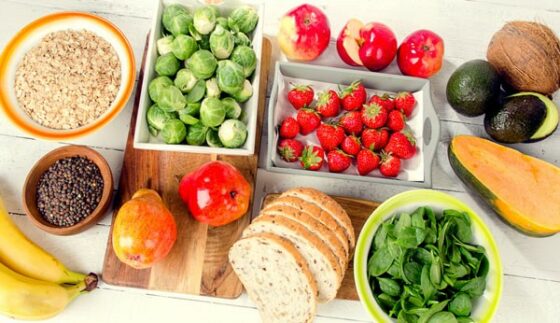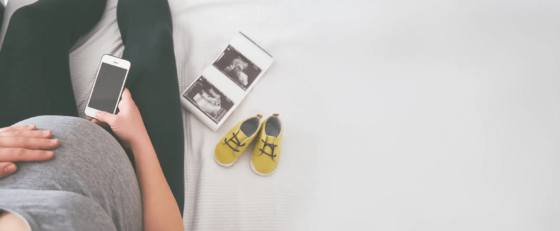Best Food For Pregnancy: 6 Key Nutrients
Folic acid, omega-3 fatty acids, vitamin D, iron, calcium and iodine are essential nutrients for your baby. Some supplements are recommended in pregnancy.

Healthy mum, healthy baby
What you eat during pregnancy can have a profound effect on the health and wellbeing of your baby.
Scientists have spent decades studying how our early life environment is linked to longer term health. They have found that good nutrition in pregnancy and the first few years of life can help to reduce the risk of developing diseases such as obesity and allergy in later life. That’s why it is so important for you to combine good nutrition and a healthy lifestyle during pregnancy.
While your baby’s precious organs are developing, make sure you are including these six key nutrients in your diet. Try to eat a healthy balanced diet which will provide you with these essential nutrients. Supplements are also available which can help. It’s a good idea to ask your GP or a dietitian about what supplements you need.
Folic acid
Folate is a B vitamin which is found naturally in foods such as leafy green vegetables and citrus fruits. Folic acid is the synthetic form of folate.
Folic acid plays an important role in the closure of the baby’s neural tube, which then forms the brain and spinal cord. Without enough folic acid, your baby may be at risk of neural tube defects like spina bifida. From at least one month prior to conception and during your first trimester it is recommended that you take a nutritional supplement containing at least 400µg of folic acid every day as you may not get enough folate from your diet alone.
Omega-3 fatty acids
Long chain Omega-3 polyunsaturated fatty acids – which are found in oily fish such as salmon, trout and mackerel, as well as linseeds, rapeseed oil and walnuts – are thought to play an essential role in the development of your baby’s brain, nervous system and retinas of the eyes.
During pregnancy, it’s a good idea to eat two to three serves of oily fish per week. Make sure any fish you eat is cooked through properly and avoid fish like swordfish, shark and marlin as they are high in mercury.
Vitamin D
Vitamin D is produced naturally by your body when skin is exposed to sunlight. During pregnancy, it helps maintain healthy bones for you and your developing baby, aids in calcium and phosphorous absorption, and plays a role in cell division and muscle function. Depending on the time of year that you’re pregnant, and where you live in Australia, you may not be getting enough Vitamin D from the sun. Though found in some foods, it is rare to get enough Vitamin D just from dietary sources. If you are concerned about your Vitamin D levels it is worth discussing this with your healthcare professional. They may recommend that you start on a Vitamin D supplement.
Iron
Iron is found in red meat, chicken, eggs, beans, fortified breakfast cereals and leafy green vegetables.
Here are some of the ways iron helps during pregnancy:
- Aids in the transport of oxygen to your developing baby
- Supports your baby’s brain development
- Helps maintain healthy blood, which is essential during pregnancy due to the increased blood volume in your body
- Can help to reduce tiredness
Given iron’s crucial role during pregnancy, you should aim to eat at least two serves of iron-rich foods each day.
Calcium
Calcium is mainly found in milk, cheese and yoghurt. If you’re not a dairy fan, don’t worry – other foods have calcium in them too, like fortified soy yoghurts or milk, fortified tofu, fortified orange juices or tinned fish like sardines or tuna which have the bones crushed in them.
Calcium is important as it helps in the formation of a strong skeleton for your baby. Luckily your body adapts during pregnancy to make the most of the calcium you get in your diet. If you are worried that you are not getting enough calcium from your diet, speak to your healthcare professional.
Iodine
Iodine is found in foods like dairy products, seafood, seaweed (kelp), eggs, bread, some vegetables and iodised salt. During pregnancy, your thyroid uses iodine to produce hormones that are important for the normal development of your baby’s brain and nervous system.
Given this, it’s very important that you get enough iodine when pregnant. It’s recommended that you take an iodine supplement of 150 mcg each day to make sure your baby’s needs are met.
References:
Healthy Eating When You’re Pregnant or Breastfeeding | Eat For Health
Iodine – Better Health Channel
SIGN UP FOR WEEK-BY-WEEK PREGNANCY UPDATES
Want to know more? Call us on 1800 842 098 or Live Chat now.
Track your baby’s development
Get month-by-month advice on your baby’s development



